Where Do You See the Extraordinary?
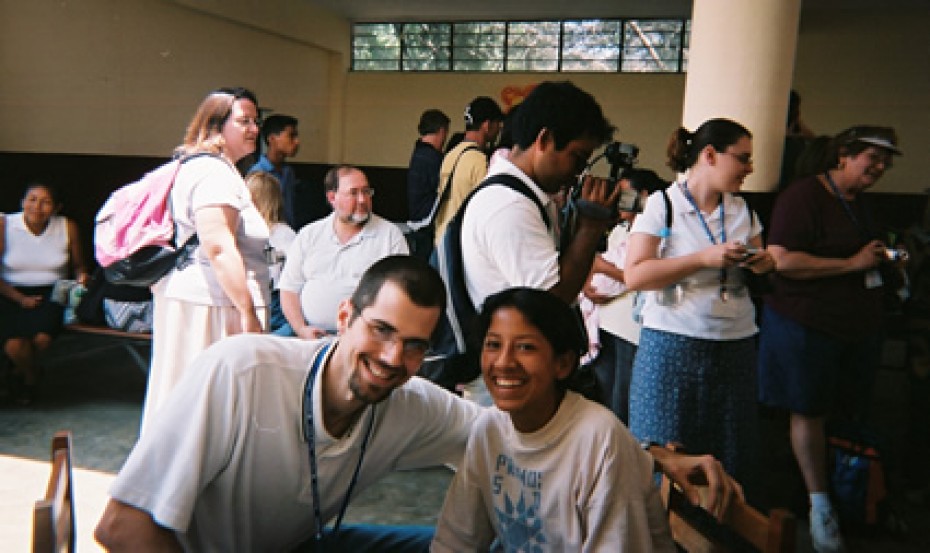
May Katerin’s testimony serve as a reminder for us that even the simple things we do can have eternal significance.
Continue Reading ›A Spirit of Power and Love
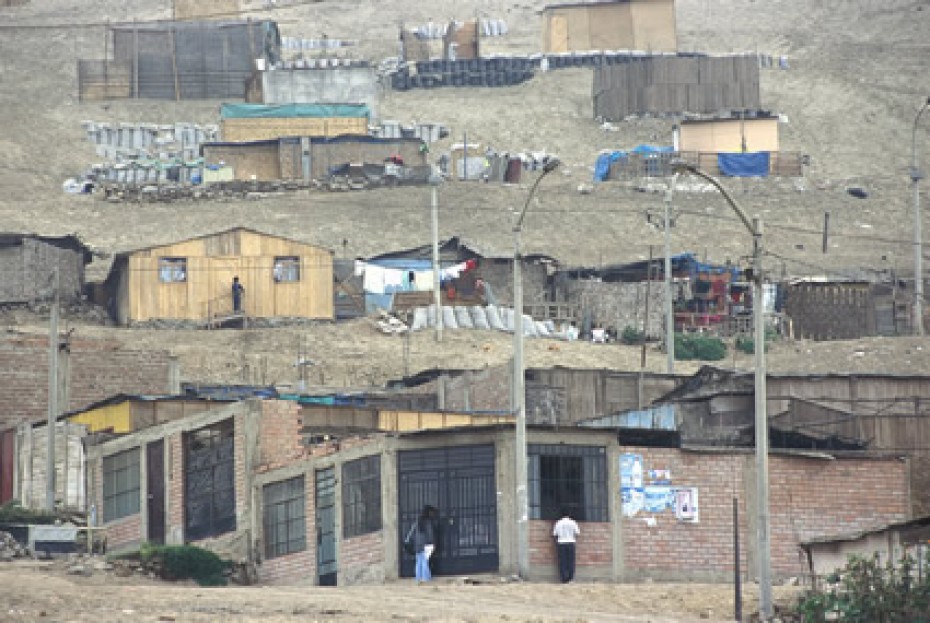
Seeing how hard poverty hits those who have the least can rob you of peace. Does fear ever stop you from doing something?
Continue Reading ›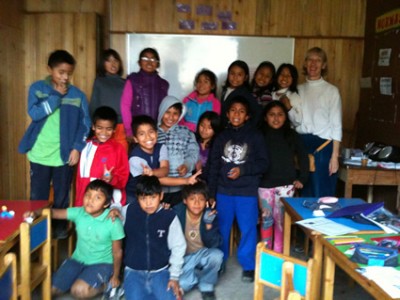
Six Things I Learned From a Local Church in Peru
Earlier this year, while her husband was on sabbatical in Peru, sponsor Eunice Lehmacher spent time at the Tesoros del Señor Child Development Center. In her time observing our ministry, she learned six small, but important, lessons.
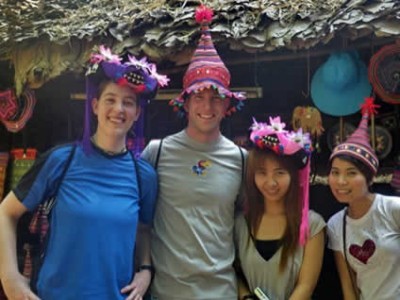
How Deep Does Compassion Run in Your Family?
This past Mother’s Day I got an interesting gift from my daughter, Sarah, and I called to ask what it meant. The number 38* rang a bell for me, but I wasn’t sure what she meant by her note.
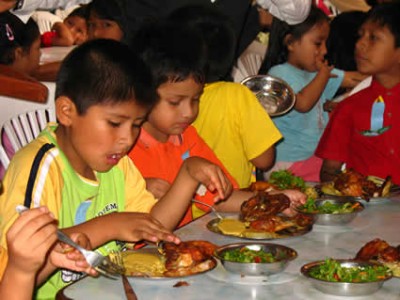
Ministry Highlight: Peru
Compassion began its ministry in Peru in 1985, when the Child Sponsorship Program was started. In 2003, both the Child Survival Program and the Leadership Development program began.
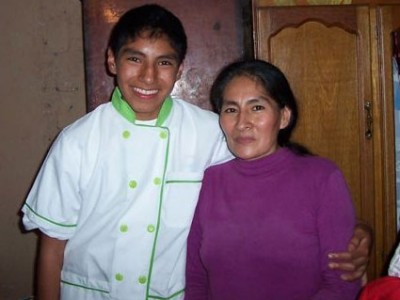
The Trials of Job
When I asked how we could pray for the family, Job started to cry. I was told, “Job needs to experience a father’s love right now.”
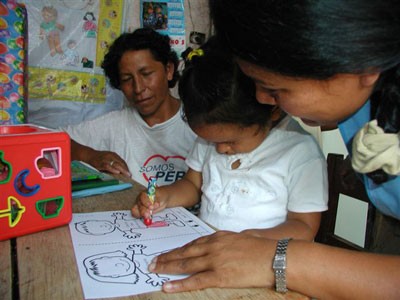
Child Survival Program: Building Trust and a Better Tomorrow
The question to measure the success of interventions to the poor is, “Did the person delivering the service and the person receiving the service build trust in each other?”
Compassion Alumna Now Serving the Poor With Compassion
After learning that his wife was expecting a second child, Giovanna’s father became angry and asked her to have an abortion. But the young mother decided to have her baby. She found out that her husband had another woman and already had children with her, so Giovanna’s mother kicked her husband out of the house.
The father did not care about supporting his two children. So after Giovanna was born, her mother worked hard to support the children by herself. The family lived in a precarious house made of matting, cardboard and plastic. When her mother learned about Compassion, she registered her children.
But Giovanna’s father liked to drink alcohol. Whenever he was drunk his partner kicked him out of the house, and he would go to visit his wife only to have sex. He became aggressive if nobody opened the door. He did not care about the two scared children watching.
After some time Giovanna’s mother was expecting a third child. She decided to leave the house and go to some other place in order to stop the family violence and the sad consequences of her husband’s behavior. For example, two children at the child development center had the same last name as Giovanna; they were her half brothers.
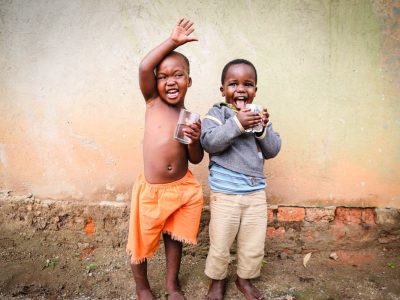
Funny Things Kids Say
What puzzling, quirky, amusing things have your sponsored children written in their letters to you?
One Day in the Life of a Tours and Visits Team Leader (Part II)
Sorry for so abruptly abandoning you yesterday. Please rest assured that if you’re ever on a tour with me, I won’t do that to you. 🙂
So, where did I leave off? Oh yes – 10 a.m.
10 a.m. Training with church partners that will be visited by another tour arriving in a few weeks. We asked six directors to come but most of them are late.
When I start 30 minutes later, I can’t go fast due to the fact that this will be a visit to their centers and they have a lot of questions.
I give them examples of what to do and what not to do, and encourage them to ask questions.
They are very excited for the visit and have a lot of enthusiasm and suggestions. Great!
But still we have to provide several guidelines. For example about the food.
We need to avoid too much spice, raw salads or any other thing that causes problems, and at the same time, not eat chicken every day.
Luckily our food is wonderful and we have lots of choices, but we cannot serve guinea pig or our best seafood dish, ceviche. Not all visitors are so adventurous to eat an animal they would view as a pet, or raw fish with chili.
Besides food, there are other intercultural issues to manage.
Time is a more relaxed concept in Peru and in all South America. To be sure that both standards meet, I tell church partners to be ready half an hour in advance. This way, they are really ready when we arrive … most of the time.
I often call in advance, though, and sometimes I have told the driver to go slowly while I point out some interesting views on the road to gain some time.
Also, for home visits I’ve learned that “accessibility” is quite a different concept for center staff, who are used to going up and down the hills – though per the visitors report, I should call them mountains – without using stairs.
I have learned to be suspicious when they say that the house to visit is located “aquicito nomas” (or very, very close).
I ask them to provide at least one house that is really close and in a flat area. They tell me that all are accessible by mototaxi, (a motorbike that pulls small car with a seat for two people), but still I ask for the names of the children to be visited and give ideas for the grocery bags we will give away at each home visit.
Another difficulty is finding the best way to communicate our ideas to the center staff. They are very loving and committed people, but many of them do not have higher education. However, they have a lot of resources and are very creative. But still, I need to set clear guidelines.
1 p.m. Lunch with the center directors. They continue to ask questions about the visit, and Elia and I continue to answer. As we usually translate in lunches and dinners, we know the art of talking and eating at the same time, so this is no problem.
The center staff are very friendly and excited, so they talk a lot.
2 p.m. We continue with the training. The directors make a draft program for the visits; each one now knows what we will see at their child development center: Child Survival Program mothers and babies, new center, older center, kindergarten children, boys and girls, teenagers, workshops, Leadership Development Program students, former participants of Compassion’s program, home visits, etc.
In this way, the visitors will have the whole screen of Compassion work. Some centers also have children who will attend the fun day to meet their sponsors.
Now the coordination is made and, God willing, all will be ready when we visit the centers in some weeks.
Then I get an instant message from the Global Ministry Center, but I explain to that person that I am in a meeting and I see if he can wait. We agree to talk when my training is over.
3 p.m. Back at my desk. I have time to write down clearly some of the ideas the church partners had in the meeting. This will improve the materials for future training.
Another instant message. I see what they need and answer. However, I am not ready to answer all of it, as some answers have not arrived from the centers yet. I have to ask for more time.
I try to make one urgent call to answer, but the center does not work today so I have to wait until tomorrow.
3:15 p.m. My manager calls to get an answer about the approval for a tour request for next year. (more…)
One Day in the Life of a Trips and Visits Team Leader
My name is Soledad Agreda, and I am the Trips and Visits Team Leader of the Peru office. I have been doing this work for about a year and a half now, and my main responsibilities are to organize, facilitate and host individual sponsor visits and trips along with Elia Sipan, the Trips and Visits Specialist.
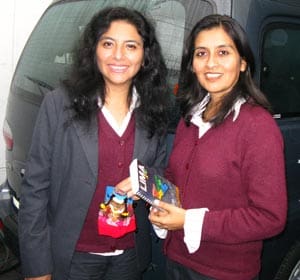 Our positions are thought to be some of the most exciting in Compassion. We get to go out a lot, travel on a regular basis, go to nice dinners and get to know many interesting people. It is true, my position involves these things, but it is actually much more.
Our positions are thought to be some of the most exciting in Compassion. We get to go out a lot, travel on a regular basis, go to nice dinners and get to know many interesting people. It is true, my position involves these things, but it is actually much more.
With the purpose of giving a better understanding, I will describe one day in my life, but I would like to give some more information about me first.
I am single and still live with my parents and my brother. I have been working with Compassion for 12 years now.
Because I worked as a translator for children and sponsor letters before becoming an employee, when I became an employee, I started working with correspondence. However, my previous manager, who is now the country director, encouraged me to focus on sponsor visits as I had the skills of fluent English, intercultural experience and getting along well with people.
So I have been in sponsor visits since the very first year I joined Compassion. Besides the fact that I really like children and enjoy being with them, one reason I decided to work here is because I felt at home with Compassion.
As a result of my work, I have learned that I can do more things than I ever expected.
At first I did not know I could become a Trips and Visits Team Leader. In fact, the position did not even exist at that time. But as I worked through the years, I overcame some of my limitations (like not knowing Lima well; now I have a map in my head) and built my strengths (like my love for reading and history, a great help to answer questions and provide information).
Also, I have seen the faithfulness of God in the ministry and in my life and how He has taken Compassion and me beyond what we expected.
I believe we really have the opportunity to deliver children from poverty. And I still remember many years ago, while I was translating for a video, I asked the final question to the young mother we were interviewing: “What do you want for the future of your child?”
She held the 4-year-old girl, looked around the one poor room she called home, and seemed to think how trapped she was there, with a husband without a steady job, no education and the first of many children to come already in her lap.
Then she stared at me while she answered: “I want her to have a life different than mine, that she can study and progress … I do not want her to have my same life.”
So that is why we work. That is why I am here.
If I could tell you one thing it is that you should know how important you are for the children and how sad they feel when they do not get any correspondence.
Money means a lot, but emotional support and care is even more important for reaching our goal, which is what this mother mentioned: to give our children the chance for a different life.
Now let’s see what a day can be like for me. (more…)
Child Survival: A Story From Peru
It’s hard to believe my boy, Edison, is 13 months now. He’s toddling around the house at different speeds with various amounts of control, experimenting with new and unusual crash techniques. It’s quite entertaining.

He can talk now, too. Hat, book, what and it’s impossible to forget his absolute favorites, hi, dog and ruff-ruff (of course spoken with a slight growl). I wish you could hear his little kid voice yelling all these words with abandon to anyone who will listen.
He uses his favorite words at very specific times. Whenever out and about, most anyone anywhere will hear his request for attention from strangers because of his very loud and clear hi!
But his real favorite is dog. It’s usually the first thing he says when he wakes up in the morning, and just to make sure I understand what he said, he will add a ruff-ruff for good measure.
It’s amazing to think that just a few months ago he literally couldn’t do anything.
Over the last several months, since I entered back into life after Edison’s birth, I’ve been volunteering in my church’s nursery. I typically take care of the newest babies, which is a great reminder of how far Edison has come, but even more it’s a great reminder of just how vulnerable babies are – which brings me to Carmen.
I met Carmen after a hike up a steep hill on a dirt path in the outskirts of Lima, Peru. All the while I was going up I kept wondering how far I would have to traverse to actually make it down the hill without falling.
Carmen knows this path well. She climbs it often. She climbed it when she was pregnant and she climbs it now with a 5-month-old in her arms. She climbs it because it is the only way to get to her house. (more…)


